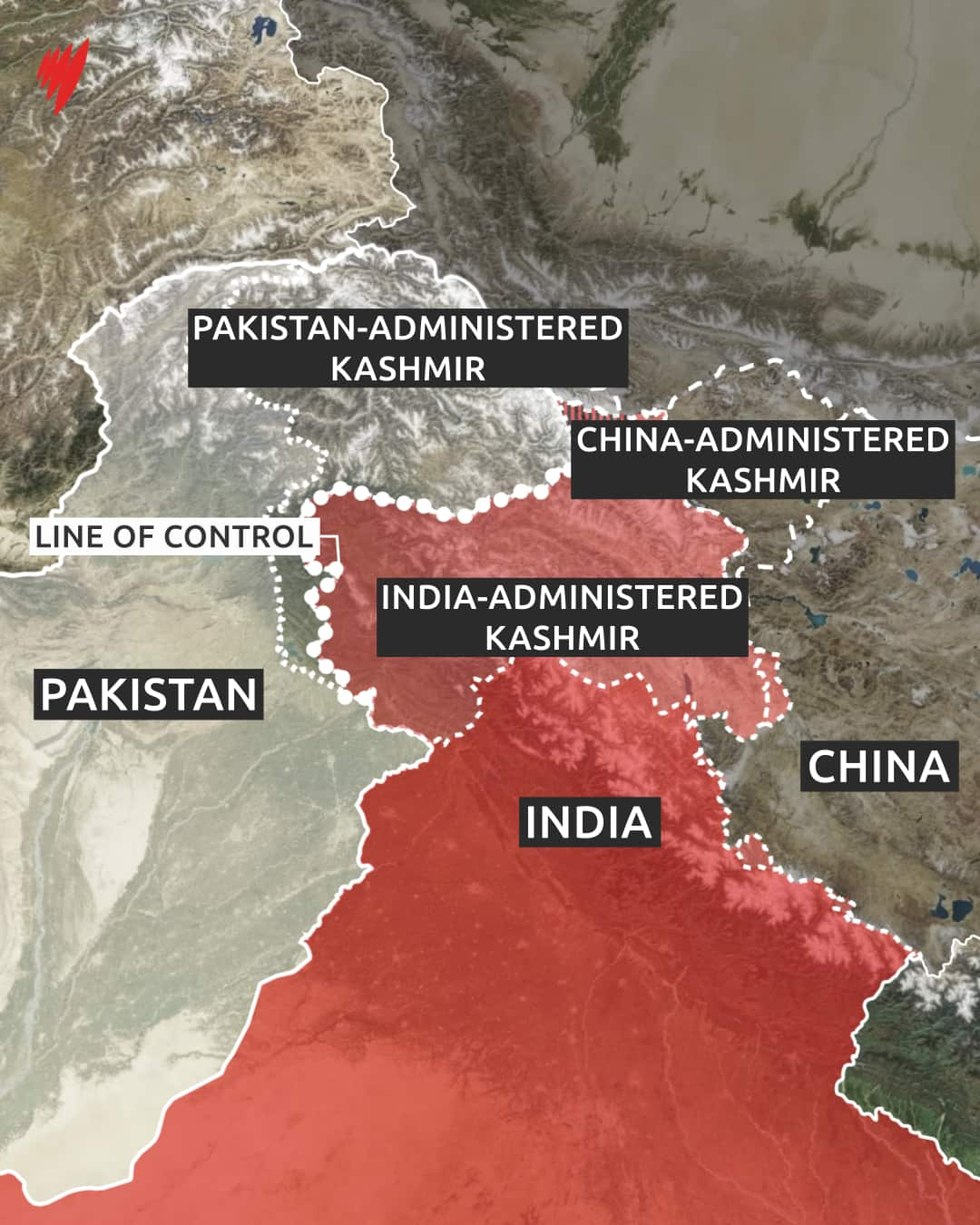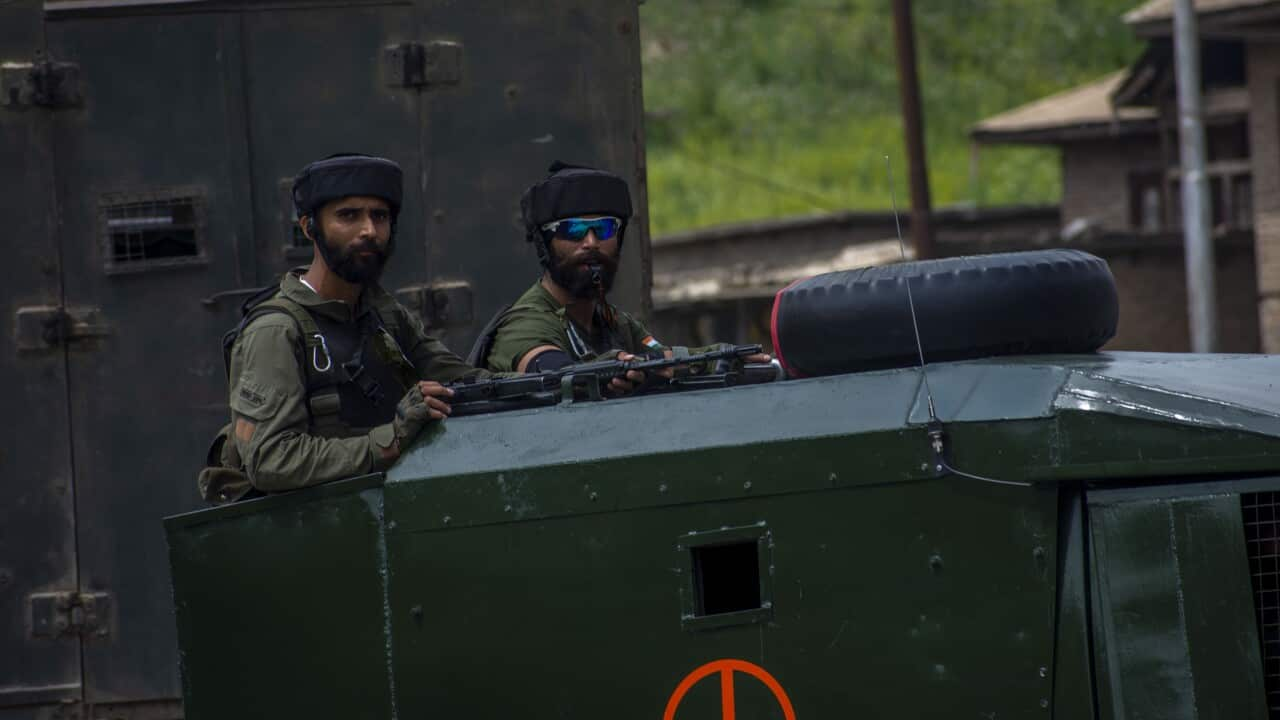India hit Pakistan and Pakistan-administered Kashmir with missiles on Wednesday, and Pakistan vowed to retaliate, saying it shot down five Indian aircraft, in the worst clash in more than two decades between the nuclear-armed neighbours.
India told more than a dozen foreign envoys in New Delhi that "if Pakistan responds, India will respond," fuelling fears of a larger military conflict in one of the world's most dangerous — and most populated — nuclear flashpoint regions.
Global leaders have urged both nations to show restraint, while United States President Donald Trump said he could "help" the situation, and wishes "they would stop".
US Secretary of State Marco Rubio separately discussed efforts to lower the temperature between India and Pakistan with his Saudi Arabian counterpart in a Wednesday call, the State Department said.

Source: SBS News
Pakistan says at least 31 of its civilians were killed and about 50 wounded in the strikes and in cross-border shelling across the frontier in Kashmir that followed, while India says 13 of its civilians died and 59 were wounded.
Islamabad pledged to respond "at a time, place and manner of its choosing to avenge the loss of innocent Pakistani lives and blatant violation of its sovereignty", rejecting Indian allegations it had terrorist camps on its territory.
Pakistan Prime Minister Shehbaz Sharif said: "For the blatant mistake that India made last night, it will now have to pay the price."
"Perhaps they thought that we would retreat, but they forgot that ... this is a nation of brave people," he said in a televised address to the nation on state broadcaster PTV.
Pakistan's defence minister Khawaja Muhammad Asif told broadcaster Geo News Pakistan would only strike Indian military targets and not civilians, in retaliation.

Children attend a candlelight vigil in remembrance of the victims in Peshawar, after India launched missile strikes in Pakistan. Source: AAP / Bilawal Arbab
India's defence minister Rajnath Singh said: "The targets we had set were destroyed with exactness according to a well-planned strategy."
"We have shown sensitivity by ensuring that no civilian population was affected in the slightest."
Pakistan said none of the six locations targeted in Pakistan were militant camps.
Fifty-seven commercial aircraft were in the air over Pakistan when India attacked, endangering thousands of lives, the spokesperson said, adding they included airlines of Saudi Arabia, Qatar, UAE, Thailand, South Korea and China.
In Muzaffarabad, the capital of Pakistan-administered Kashmir, the Indian strike had badly damaged a mosque-seminary in the heart of the city. Five missiles killed three people in the two-storey structure, which also had residential quarters, locals said.
Indian fighter jets 'shot down'
The Pakistan prime minister's office said five Indian fighter jets and drones had been shot down, although this was not confirmed by India. The Indian embassy in Beijing called reports of fighter jets downed by Pakistan "disinformation".
Local government sources in Indian-administered Kashmir told Reuters three fighter jets had crashed in separate areas of the Himalayan region overnight and their pilots had been hospitalised. Indian defence ministry officials did not respond to Reuters requests for comment.

Unverified images circulating on local media showed a large, damaged cylindrical chunk of silver-coloured metal lying in a field at one of the crash sites near Srinagar in Indian-administered Kashmir. Source: Getty / Saqib Majid
Indian forces attacked facilities linked to Islamist militant groups Jaish-e-Mohammed and Lashkar-e-Taiba, two Indian military spokespersons told a briefing in New Delhi, in what India called "Operation Sindoor".
Calls for restraint
The United Kingdom, Russia, China and the United Nations have joined several European countries in expressing concern at escalations in the conflict between nuclear-armed neighbours.
European Commission spokesperson Anouar El Anouni called for de-escalation of the conflict, which centres on contested territories in Kashmir.
"We do urge both sides to show restraint and take immediate steps towards de-escalation. The EU recalls the need for a negotiated, mutually agreed and lasting peaceful solution to the conflict," he said.
A spokesperson for Foreign Minister Penny Wong said Australia is engaging with India and Pakistan in response to recent developments in Jammu and Kashmir.
Trump offered to help both nations but didn't use strong language urging them to stop, as some of his global counterparts did.
"I know both very well. I want to see them work it out," he told reporters in the Oval Office.
"I want to see them stop.
"If I can do anything to help, I will be there."
LISTEN TO

India and Pakistan urged to pull back from the brink of war | Morning News Bulletin 8 May 2025
SBS News
06:42
Addressing UK parliament, Prime Minister Keir Starmer said: "Rising tensions between India and Pakistan will be of serious concern for many across Britain."
"We are engaging urgently with both countries as well as other international partners, encouraging dialogue, de-escalation and the protection of civilians."
UK foreign secretary David Lammy also expressed concern in a statement: "Current tensions between India and Pakistan are a serious concern."
"The UK government is urging India and Pakistan to show restraint and engage in direct dialogue to find a swift, diplomatic path forward."
Risk of escalation
The scale of the strikes went far beyond India's response to previous attacks in Kashmir, which it has blamed on Pakistan.
Michael Kugelman, a Washington-based South Asia analyst, said: "Given the scale of the Indian strike, which was far greater than what we saw in 2019, we can expect a sizable Pakistani response."

